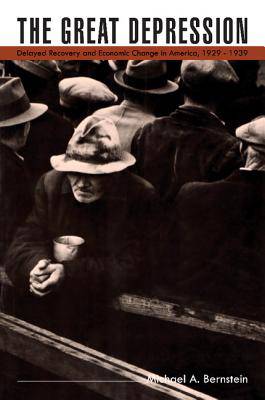
Je cadeautjes zeker op tijd in huis hebben voor de feestdagen? Kom langs in onze winkels en vind het perfecte geschenk!
- Afhalen na 1 uur in een winkel met voorraad
- Gratis thuislevering in België vanaf € 30
- Ruim aanbod met 7 miljoen producten
Je cadeautjes zeker op tijd in huis hebben voor de feestdagen? Kom langs in onze winkels en vind het perfecte geschenk!
- Afhalen na 1 uur in een winkel met voorraad
- Gratis thuislevering in België vanaf € 30
- Ruim aanbod met 7 miljoen producten
Zoeken
The Great Depression
Delayed Recovery and Economic Change in America, 1929 1939
Michael Andre Bernstein
€ 46,45
+ 92 punten
Omschrijving
By examining the uneven fate of manufacturing industries during the 1930s, Michael Bernstein presents a powerful new interpretation of the Great Depression. The depth and persistence of the slump, he argues, cannot be explained by cyclical theories alone, but by the conjunction of a crisis in financial markets with a long-run transformation in the kinds of goods and services required by firms and households. By focusing on evidence from specific industries, Professor Bernstein provides a more detailed picture of what happened to the American economy in the thirties that was so different from previous downturns.
Specificaties
Betrokkenen
- Auteur(s):
- Uitgeverij:
Inhoud
- Aantal bladzijden:
- 288
- Taal:
- Engels
- Reeks:
Eigenschappen
- Productcode (EAN):
- 9780521379854
- Verschijningsdatum:
- 27/01/1989
- Uitvoering:
- Paperback
- Formaat:
- Trade paperback (VS)
- Afmetingen:
- 153 mm x 228 mm
- Gewicht:
- 399 g

Alleen bij Standaard Boekhandel
+ 92 punten op je klantenkaart van Standaard Boekhandel
Beoordelingen
We publiceren alleen reviews die voldoen aan de voorwaarden voor reviews. Bekijk onze voorwaarden voor reviews.









